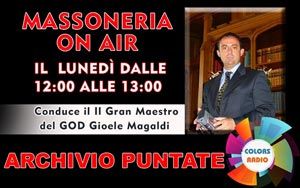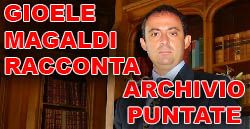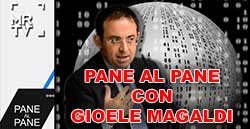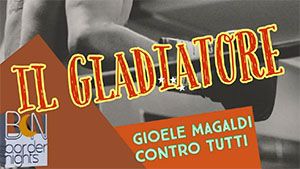Questa Europa e' davvero democratica?
- Dettagli
- Categoria: Blog
- Postato da Marco Moiso
Original link: http://rm-london.co.uk/blog/european-union-truly-democratic/
Last week, the Roosevelt Movement UK held a very successful event, during which Elena Remigi presented her book IN LIMBO.
IN LIMBO is a powerful and emotional book showing the impact that Brexit is having on European's lives.
After the book's presentation, we debated about the European Union: we discussed about what the EU was meant to be, what it is and what it should become in the future.
As usually, I declared myself to be federalist and said I truly believe in the United States of Europe. However, I also said that if we are to realise such and abitious dream we have to acknowledge the current limitations of the european institutions.
This is a topic that most pro-European Union people are not usually presented with.
That's why, I couple of days ago, I received a very welcome email from a friend asking me whether I believed the European Union to be a democratic institution.
This is my reply:
Hi XXXXXXX,
So good to hear from you!
Absolutely, please send any questions or thoughts- or we can just discuss together by email.
Let me just say that I am a federalist. I strongly believe that in a world where corporations are richer and more powerful than governments, and where neoliberal economic rules dictate political agendas, if we are to defend the european values of democracy, freedom and social security we have to do it as a federation of nations.
In a globalised world, no country, on their own, has the power to demonstrate how such a model is sustainable.
Furthermore, even though we Europeans perceive to be very different the ones from the others- and a Federation of Nations would fully allow for us to respect our cultural differences- we truly share some important values that we do no share with all other countries and/or cultures. We share one fundamental “value” above all: we still consider the human being to have fundamental, inalienable rights and still believe the human being to be the one thing that matters the most: not religion, not money, not performances, not royalty, etc..
During the second half of the 20th century, in most countries across western Europe, we used progressive economic policies (Keynes) to build a democratic, fair and free society, which we now believe is under threat.
It is under threat for two reasons: 1 because private groups of interest are more powerful, influential and rich than elected governments and 2 because these groups, through lobbying, have influenced and shaped democratic institutions. These institutions still retain a “facade” of democracy but are giving away important elements of popular sovereignty.
We see the attempt to empty “democratic” institution of true democratic processes and popular sovereignty through many, seemingly unconnected, trends in politics e.g. The move towards a majoritarian system in countries with traditionally adopted proportional systems (which provides a much better degree of control over political options, as they all have to be rooted within neoliberalism -or they are deemed as extremist and/or unreasonable); The ever growing belief that governments should not pay for political activities and campaigns (so to make sure that any political movement, in order to be able to finance their activities, have to first gain corporate approval and active support); the rise of extremism (totally fuelled and financed?) to drive polarisation towards left and/or right wing parties that operate within the neoliberal rule or towards populism that do not have a systemic vision and/or solutions (the UK at the moment is the ONLY exception and only to some degree), etc...
The European Union, that should have been a line of defense to protect the values that European countries were built upon - democracy, freedom, social equality -, has been derailed into a project that lacks democratic processes and that is imposing, over politicians and their people, a neoliberal economical agenda that only benefits the large groups of private interest we were talking about before -rather than protecting freedom and social equality for all.
We need e European Union, but a democratic one where people have the power over the institutions and where the government has monetary sovereinty.
We could have made that Union, but in 2003 the approval of a political Constitution was derailed over the excuse of Catholic origins...
The UK doesn’t have a Constitution, so you might ask:”why do we need one?” . Because a Constitution doesn’t only set the “rules of the political game” but also frames the values and the core objectives that a Nation, or Federation of States, is built upon and strives to pursue.
Without a Constitution, we decided to adopt a “functional approach” to the integration of the government functions. This “choice” made the European Union weak and vulnerable to external influences- but most importantly it caused the EU to lack a clear purpose.
Finally arriving to your question...
There are many things we should evaluate when asking ourselves whether the EU is a democratic institution.
For example, we should ask ourselves whether it is an institution that puts politics and politicians -and therefore the interests and will of the people- over economy and economists. Or more likely whether the EU is an institution driven by technocrats that rule basing their political initiatives on (neoliberal) economical theories that they present to the public as being universally true and valid, when they are not.
While investigating the above question, we would end up asking ourselves why is it that this EU, even though imposes strict economical parameters, still allows for such a poor level of economical integration, creating “de facto” an economical (and political) european dis-union with no shared interests and where countries think for themselves rather than for the common good.
From an economical perspective, let’s then ask ourselves, why the Central Bank of Europe doesn’t respond to an elected government? Why there is no monetary sovereignty? Why there are no eurobonds?
Why there js no real democracy in the European Union?
There is no real democracy simply because the parliament is subject to economical laws, theories and interests and does not have the power to produce wealth. How can you rule without the power to develop monetary and economical policies ?
Democracy becomes a facade if it doesn’t have the power - the money - to decide it’s own fate and that of the european people. Democratic institutions are simply not democratic if they renounce to the monetary sovereignty and give it to private institutions.
Furthermore, it is since the times of Montesquie that we know about the three fundamental powers that make up a true democracy and how they have to be separated. The legislative power should belong to a Parliament, working in the interest of the people who elect them.
The European Parliament is the only parliament in the world that doesn’t have full legislative power. The European Parliament cannot write laws- it can only approve, amend, or reject laws proposed by a Commission of non-elected people. They are nominated (and subject to lobbying) and therefore do not have to respond in the eyes of people who voted for them.
The commission is so powerful that once it’s nominated, the Parliament cannot even ask for a vote of no confidence!
How can such and institution be truly democratic? It has elements of democracy but it’s not democratic.
Again the EU is not truly democratic because the parliament is subject to economical rules and to a commission, and because the parliament does not have monetary sovereignty and therefore cannot develop and implement economical policies made in the interest of people.
Why am I a Federalist then?
Because I believe things can change, and will change, if we recognise and respect the European, shared values of democracy, freedom and social equality. I am a Federalist because I believe that we need the European Union, or the United States of Europe (USE), to fight back on neoliberalism. I am a Federalist because I believe the european people share these values and should unite behind them.
To conclude... The polarisation between people who are pro or anti EU is sterile. We need a strong EU if we want to fight back on neoliberalism. But we also need to build a EU that has in the DNA what it takes to do it - democracy, freedom and social equality. The EU, we should remember, is not an end but a means to an end and we meed to acknowledge the criticism, when they are right, if we are to change it.
PS. When people talk about how law is made in Britain and think that is the “true democratic way”... let’s remind them of the results that parties such as UKIP and the Green Party get at the European elections and let’s ask them: is the will of the people represented in Parliament? Is it then really the rule of the people (Demos Kratos) or is the rule of some people we can chose amkngst a very few, selected options we are given?






